|
This coup reflects Niger's existence since independence; a series of military coups and attempts, interspersed with periods of democratic rule. Each transition, whether peaceful or forceful, has underscored the deep-seated fragilities within the political system and the enduring influence of military strongmen. The challenges to political stability in Niger are multifaceted. Weak state institutions, coupled with a history of corruption and a lack of accountability, have often eroded public trust in governance. The vastness of the territory, combined with limited state presence in remote areas, creates governance vacuums that are exploited by non-state armed groups. Regional dynamics also play a significant role. Niger is a key player in the G5 Sahel force, an initiative aimed at combating terrorism, and has hosted foreign military bases from countries like France and the United States, reflecting its critical role in regional security efforts. However, these partnerships are often subjects of domestic debate and can be perceived as neo-colonial influences, further complicating political discourse and contributing to anti-Western sentiment. The interaction between internal discontent – fueled by socio-economic grievances – and external security threats creates a volatile mix. The political leadership, regardless of its legitimacy, consistently grapples with the immense task of securing borders, providing basic services, and fostering a sense of national unity among diverse ethnic groups. The repeated disruptions to constitutional order hinder long-term planning and investment, perpetuating cycles of poverty and insecurity that are detrimental to overall stability. |
Niger Profile |
Niger Profile |
Niger Profile | Niger Profile |
Take our online trivia quiz and see how much you know about Niger including some interesting facts.
More >
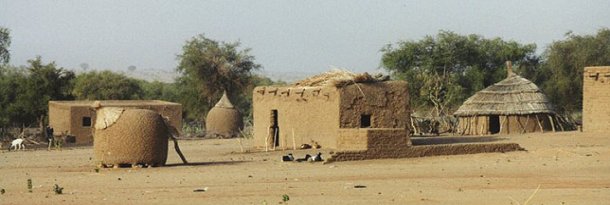
Niger's economic profile is characterised by stark contrasts and persistent vulnerability. Despite possessing significant reserves of uranium – for decades a vital export and a cornerstone of its economy – as well as oil and gold, the benefits of these resources have scarcely trickled down to the majority of its population. Niger consistently ranks among the lowest on the United Nations Human Development Index, currently 189th out of 193 countries, indicative of widespread poverty (45.5% of the population lives below the national poverty line), low life expectancy (61.18 year), and limited access to education and healthcare with a primary school enrollment rate of around 68.53% and a literacy rate of 38.1%. Many children and young people are at risk of sexual exploitation and human trafficking for enforced begging, enforced working in in gold mines, domestic servitude and also for working in agriculture and stone quarries.
The social profile of Niger is as diverse as it is challenging. Home to numerous ethnic groups, including the Hausa, Zarma-Songhay, Tuareg, Fulani, and Kanuri, Nigerien society is characterised by rich traditions, languages, and belief systems, primarily Islam. Family and community ties are strong, forming vital support networks in a country where state services are often limited. However, daily life for most Nigeriens is a continuous struggle against adversity. Over half the population lives below the poverty line. Access to basic services like clean water, sanitation, and electricity is severely restricted, particularly in rural areas. Educational attainment rates are low, especially for girls, due to cultural factors, early marriage, and a lack of adequate schooling facilities. Healthcare facilities are scarce, and the country faces a heavy burden of preventable diseases, high maternal and infant mortality rates, and limited access to essential medicines. The pervasive insecurity in the Sahel region has further impacted social stability. The activities of extremist groups like Boko Haram, ISWAP (Islamic State West Africa Province), and JNIM (Jama'at Nusrat al-Islam wal-Muslimin) in border regions have led to significant internal displacement, creating humanitarian crises and placing immense pressure on host communities. These conflicts also disrupt agricultural cycles, limit access to markets, and heighten inter-communal tensions, as resources become scarcer and trust erodes. Gender inequality remains a significant social issue in Niger, with women often having limited access to education, land ownership, and decision-making roles. Efforts to address issues like child marriage and female genital mutilation are ongoing but face significant cultural barriers. Despite these immense challenges, the resilience and adaptability of the Nigerien people are remarkable. Community-led initiatives for education, sustainable agriculture, and conflict resolution demonstrate a strong will to overcome adversity. However, these localised efforts require broader systemic support to achieve lasting social stability and improve daily life outcomes. Find out all about Niger in the profile articles above exploring the country in more detail with pictures, facts and videos. |
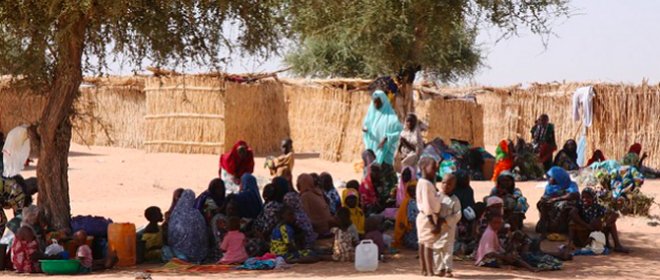


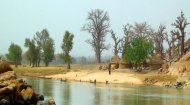





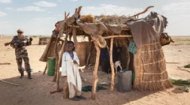
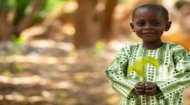



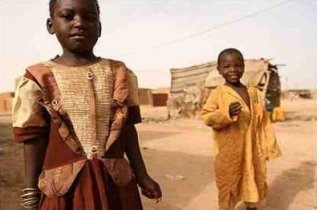 Agriculture remains the backbone of the economy, employing over 80% of the workforce. However, this sector is largely rain-fed and highly susceptible to the vagaries of climate change. Frequent droughts, erratic rainfall, and desertification have decimated harvests, leading to chronic food insecurity and a high prevalence of malnutrition, especially among children. This reliance on subsistence agriculture, coupled with a largely informal economy, leaves millions vulnerable to external shocks and limits opportunities for diversified growth. Climate change acts as a multiplier of these fragilities, exacerbating food insecurity and sparking competition over scarce resources, which can then spill over into social and political conflict. The security crisis, driven by extremist groups, further compounds these issues, forcing displacement, disrupting livelihoods, and straining the already limited resources of the state.
Agriculture remains the backbone of the economy, employing over 80% of the workforce. However, this sector is largely rain-fed and highly susceptible to the vagaries of climate change. Frequent droughts, erratic rainfall, and desertification have decimated harvests, leading to chronic food insecurity and a high prevalence of malnutrition, especially among children. This reliance on subsistence agriculture, coupled with a largely informal economy, leaves millions vulnerable to external shocks and limits opportunities for diversified growth. Climate change acts as a multiplier of these fragilities, exacerbating food insecurity and sparking competition over scarce resources, which can then spill over into social and political conflict. The security crisis, driven by extremist groups, further compounds these issues, forcing displacement, disrupting livelihoods, and straining the already limited resources of the state.


